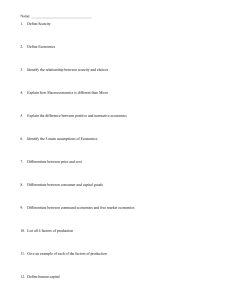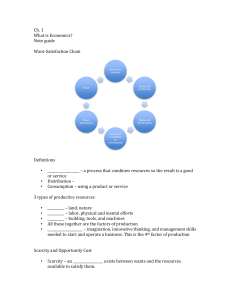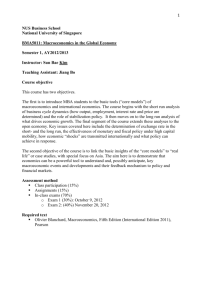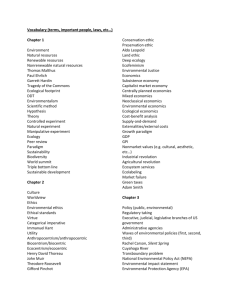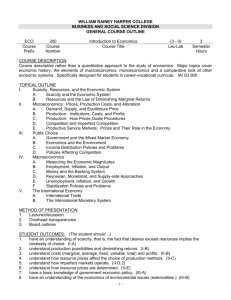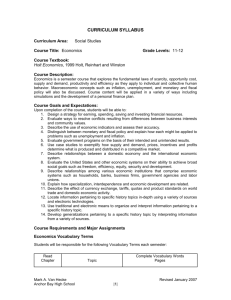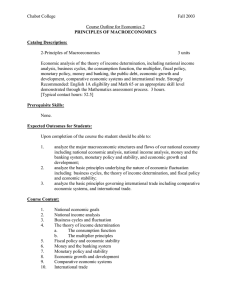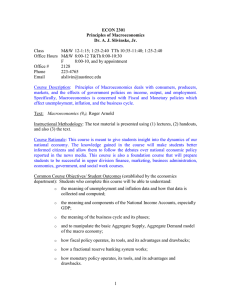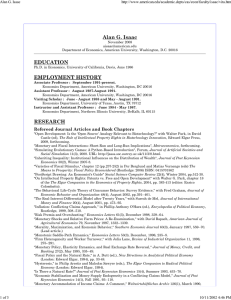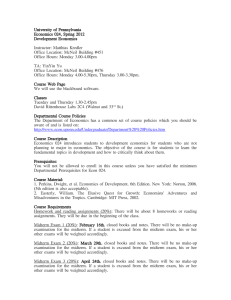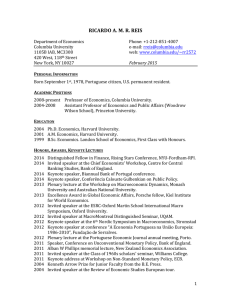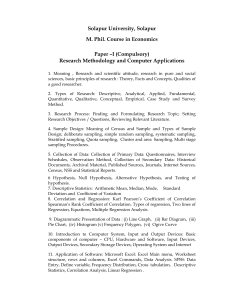Principles of Economics Mr.Bills Course Number: 1077
advertisement
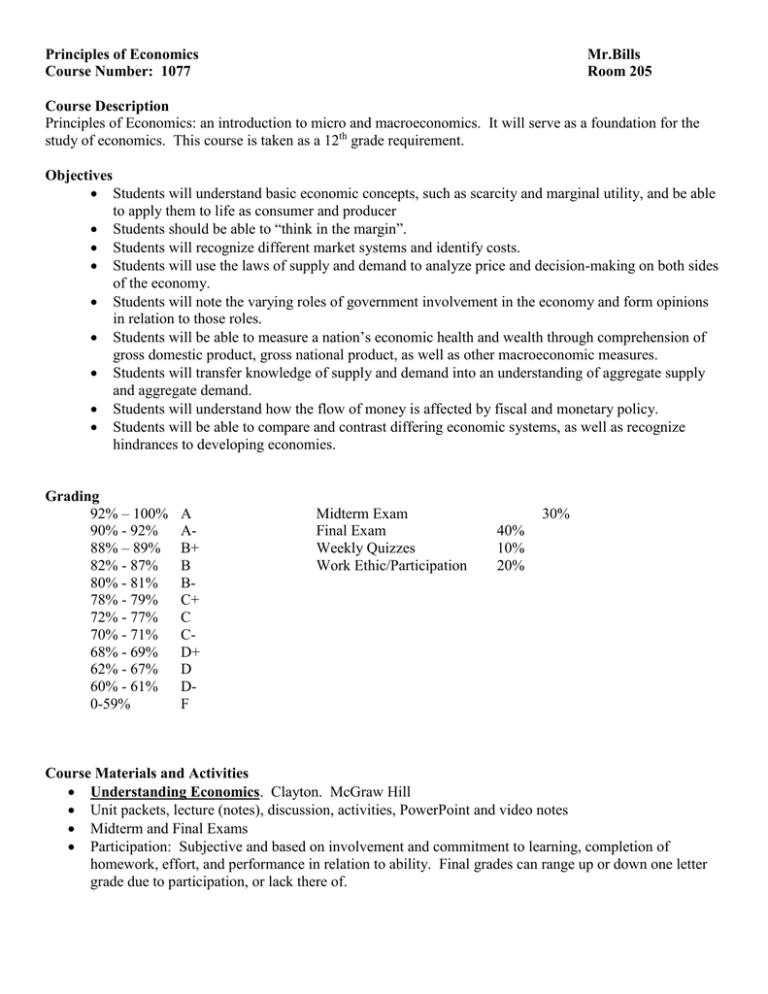
Principles of Economics Course Number: 1077 Mr.Bills Room 205 Course Description Principles of Economics: an introduction to micro and macroeconomics. It will serve as a foundation for the study of economics. This course is taken as a 12th grade requirement. Objectives Students will understand basic economic concepts, such as scarcity and marginal utility, and be able to apply them to life as consumer and producer Students should be able to “think in the margin”. Students will recognize different market systems and identify costs. Students will use the laws of supply and demand to analyze price and decision-making on both sides of the economy. Students will note the varying roles of government involvement in the economy and form opinions in relation to those roles. Students will be able to measure a nation’s economic health and wealth through comprehension of gross domestic product, gross national product, as well as other macroeconomic measures. Students will transfer knowledge of supply and demand into an understanding of aggregate supply and aggregate demand. Students will understand how the flow of money is affected by fiscal and monetary policy. Students will be able to compare and contrast differing economic systems, as well as recognize hindrances to developing economies. Grading 92% – 100% 90% - 92% 88% – 89% 82% - 87% 80% - 81% 78% - 79% 72% - 77% 70% - 71% 68% - 69% 62% - 67% 60% - 61% 0-59% A AB+ B BC+ C CD+ D DF Midterm Exam Final Exam Weekly Quizzes Work Ethic/Participation 30% 40% 10% 20% Course Materials and Activities Understanding Economics. Clayton. McGraw Hill Unit packets, lecture (notes), discussion, activities, PowerPoint and video notes Midterm and Final Exams Participation: Subjective and based on involvement and commitment to learning, completion of homework, effort, and performance in relation to ability. Final grades can range up or down one letter grade due to participation, or lack there of. Microeconomics I. Unit 1 a. PPC i. Scarcity – the basic economic question ii. Trade offs/Opportunity costs (implicit costs) iii. PPC – modeling opportunity costs iv. Margin b. Factors of Production II. Unit 2 Expectations a. Basic Economic Questions Reading is to be done and guided b. Basic Economic Systems readings filled out before we begin c. Economic Goals enriching the items from that III. Unit 3 chapter. a. Supply & Demand Personal reading level, work ethic, IV. Unit 4 motivation, and time management a. Market Structures will determine the amount of b. Types of Economic Organizations outside reading and homework V. Unit 5 time. It is strongly suggested that a. Cost Curves students work daily outside of b. Economies of Scale class, at least review, in order to be VI. Unit 6 properly prepared for the midterm a. Personal Finance and final examinations. Macroeconomics Respecting others, especially their I. Unit 1 opinions and their right to speak, a. Business Cycles will be critical. II. Unit 2 o You do not have to agree a. Circular Flow with everyone. b. Role of Government Late work receives no credit. III. Unit 3 Take care of personal business a. AS/AD analysis during passing time. b. LRAS Tardiness and absence records are c. Fiscal Policy strictly maintained. d. Monetary Policy o 10 absences = No Credit. IV. Unit 4 o 3 tardies = 1 absence. a. International Trade Do not write on desks i. Comparative Advantage Treat books with respect. ii. Trade Deficits When given time to work in class, iii. Exchange Rates work until the bell. iv. Trade Barriers o Never gather by the door v. Balance of Trade prior to the end of class. vi. Foreign Exchange Markets Bring book, notebook, course V. Unit 5 materials and writing utensils every a. Domestic Policy day. b. Foreign Policy No headphones, cell phones, games, food or beverages in class. Water is fine. Your work ethic is critical to your performance and results in this class.
